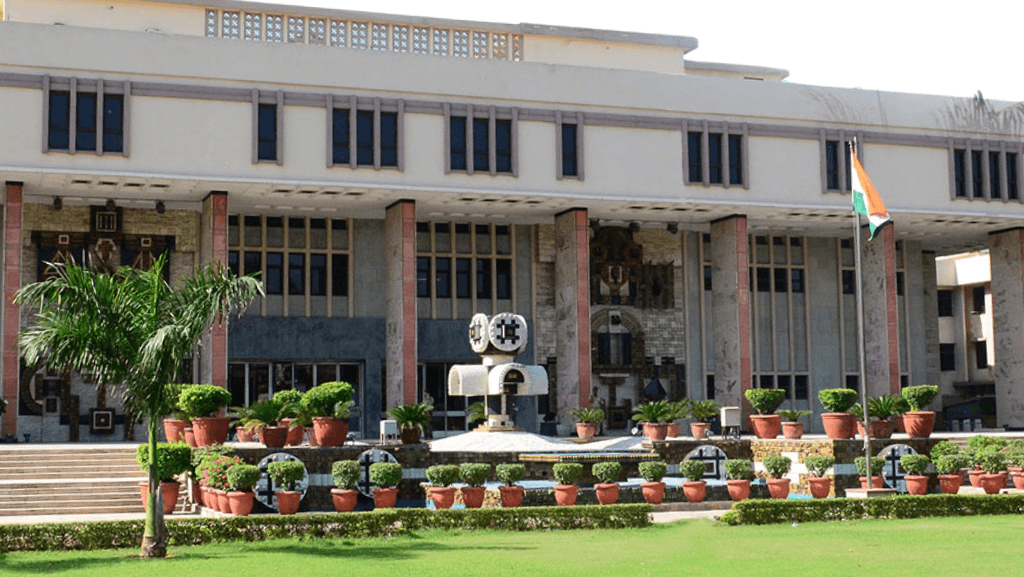
Delhi High Court: Brief Confusion Equals Trademark Infringement
In a significant ruling, the Delhi High Court emphasises that even fleeting consumer confusion can constitute trademark infringement, reinforcing protections for brand owners.
Court's Ruling on Momentary Confusion
On May 23, 2025, the Delhi High Court delivered a pivotal judgment in the case of Under Armour, Inc. versus an Indian clothing company marketing products under the brand name AERO ARMOUR. The court held that even brief confusion in the minds of consumers is sufficient to establish trademark infringement under Indian law.
The division bench, comprising Justices Vibhu Bakhru and Sachin Datta, overturned an earlier single-judge decision that had denied interim relief to Under Armour. The court observed that the marks "AERO ARMOUR" and "UNDER ARMOUR", though not identical, are deceptively similar when considered in their entirety.
The court stated:
“If the customer looks at the impugned marks and associates the same with the appellant's marks, even though for a brief period, the appellant's trademarks would be infringed. The duration of the confusion in the minds of the customer is not material.”
This ruling underscores the principle that the likelihood of confusion, even if momentary, is a critical factor in determining trademark infringement.
Implications for Trademark Law in India
The Delhi High Court's decision reinforces the stringent standards applied to protect intellectual property rights in India. By acknowledging that even transient confusion can harm a brand's reputation and goodwill, the court has set a precedent that may influence future cases involving similar disputes.
This judgment aligns with previous decisions where the court has prioritised the protection of established trademarks against potential infringement. For instance, in a 2024 case, the court granted an injunction to INFOSYS against Southern Infosys Ltd, citing phonetic and conceptual similarities that could confuse consumers.
Legal experts suggest that this ruling may prompt businesses to exercise greater caution in selecting brand names and trademarks, ensuring they do not inadvertently infringe upon existing marks, even if the similarity appears minimal or the potential for confusion seems fleeting.
Case Background: Under Armour vs. AERO ARMOUR
Under Armour, Inc., a prominent American sportswear company, initiated legal proceedings against an Indian entity marketing apparel under the name AERO ARMOUR. Under Armour contended that the use of "AERO ARMOUR" constituted an infringement of its registered trademark "UNDER ARMOUR", leading to consumer confusion and dilution of its brand identity.
Initially, a single judge of the Delhi High Court declined to grant interim relief to Under Armour, suggesting that the marks were not sufficiently similar to warrant such action. However, upon appeal, the division bench reversed this decision, emphasising the holistic similarity between the two marks and the potential for even brief consumer confusion to cause significant harm to the trademark holder.
The court's interim order restrains the Indian company from using the "AERO ARMOUR" mark, pending the final resolution of the case.
Expert Commentary
Legal professionals have lauded the Delhi High Court's decision for its robust protection of trademark rights. By recognising that even momentary confusion can be detrimental to a brand's reputation, the court has reinforced the importance of distinctiveness in trademarks.
Sunil Ambalavelil, Chairman of Kaden Boriss, a prominent international law firm, welcomed the Delhi High Court’s decision as a significant reinforcement of India’s trademark jurisprudence.
With over two decades of experience advising on intellectual property law, data protection and business setup, Ambalavelil stated:
“The Delhi High Court’s ruling sets a strong precedent in affirming that even fleeting or initial confusion in the consumer’s mind can amount to trademark infringement.”
Key Takeaways
-
The Delhi High Court ruled that even brief consumer confusion can amount to trademark infringement.
-
Under Armour vs. AERO ARMOUR case set a precedent for stricter brand protection.
-
The court overturned a previous ruling, granting relief to Under Armour.
-
Businesses must be cautious when selecting trademarks to avoid legal disputes.
-
Decision reinforces intellectual property laws, prioritising brand distinctiveness in India.
For any enquiries or information, contact info@thelawreporters.com or call us on +971 52 644 3004. Follow The Law Reporters on WhatsApp Channels.